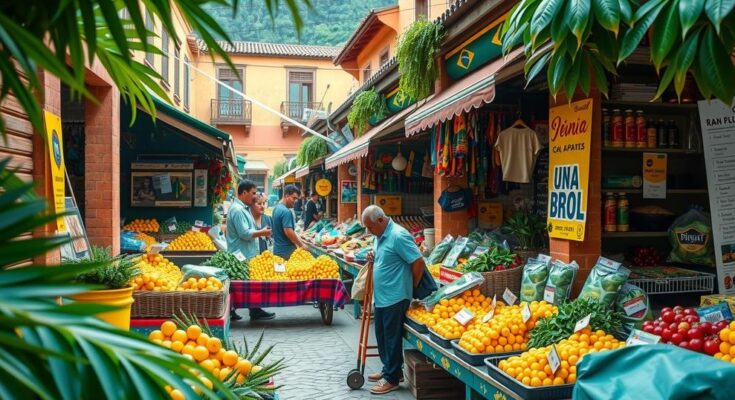Brazil’s consumer prices surged 1.31% in February, marking the largest increase in three years and pushing annual inflation to 5.06%. This situation is straining President Lula’s administration, as costs of living rise and public approval ratings drop. The central bank plans a significant interest rate hike to address inflationary concerns, though anticipated government measures may have limited impact.
Brazil’s consumer prices experienced their largest increase in three years last month, significantly impacting President Luiz Inacio Lula da Silva’s administration. The official data released indicated a 1.31% rise in February, matching economists’ median expectations. Consequently, annual inflation accelerated to 5.06%, primarily driven by soaring food costs, which have heightened shopper dissatisfaction and prompted governmental actions to provide relief.
The central bank is poised to implement a third consecutive interest rate hike of one percentage point, expected to dampen economic growth amidst public concerns about the economy. According to Bloomberg Economics, ongoing inflationary pressure stemmed from temporary and seasonal factors, with expectations of price increases surpassing targets through 2025 due to resilient inflation forecasts and existing economic conditions.
Particularly, housing costs surged by 4.44% in February as utility bill increases followed the expiration of energy credits. Additional price hikes were observed in sectors such as education, which rose by 4.7%, and food and beverages, which experienced a 0.7% increase. The central bank’s anticipated Selic benchmark interest rate is projected to reach 14.25%, exacerbating public discontent with President Lula’s leadership, as evidenced by plummeting approval ratings.
In response to the rising inflation, measures including reductions in import duties for food have been initiated, though economists predict a limited impact. They anticipate that annual inflation will likely remain above the 3% target in the foreseeable future, highlighting the ongoing economic challenges facing both the government and Brazilian consumers.
In summary, Brazil’s recent spike in consumer prices has intensified pressure on President Lula’s administration. With an inflation rate of 5.06% and rising costs in essential sectors, including housing and food, the central bank is expected to raise interest rates to curb inflation. However, public dissatisfaction remains high, further complicating Lula’s governance amid ongoing economic challenges.
Original Source: financialpost.com




